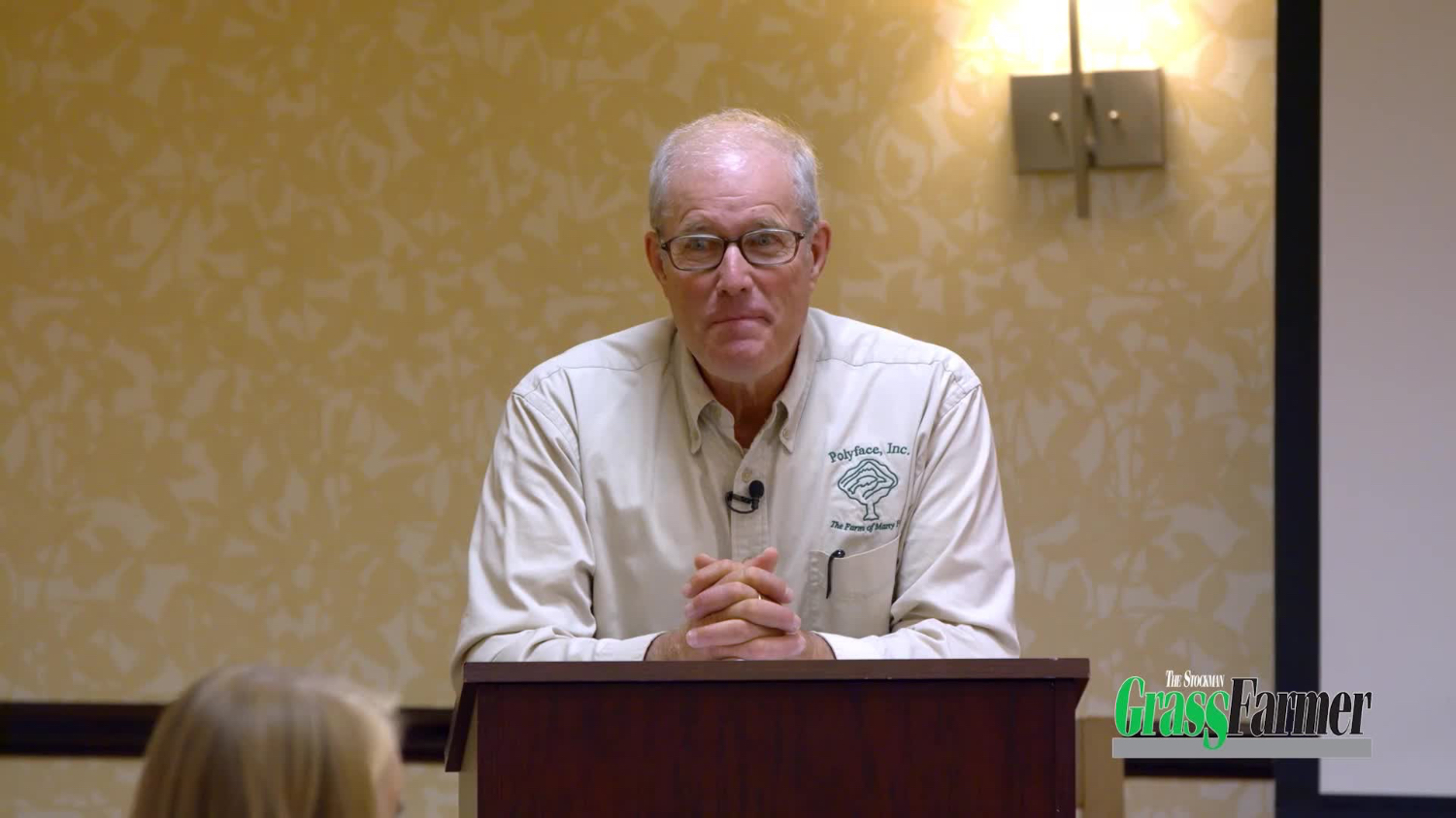The Basis of Sound Genetics by Allen Williams Part 3 of 3
🎥 Unlock Exclusive Grazing Education – Anytime, Anywhere!
Get instant access to 100+ hours of expert-led grazing courses with SGF TV—all for our lowest monthly price ever! New titles added, price stays the same, cancel anytime.
📲 Tap the link to start streaming now!
www.stockmangrassfarmer.digital/sgfv-podcast
>>>
🎙️ Episode Title: The Basis of Sound Genetics with Dr. Allen Williams (Part 3 of 3)
📝 Featured Speaker: Dr. Allen Williams
In the final part from the Grass & Genetics School, Dr. Allen Williams wraps up his deep dive into “The Basis of Sound Genetics,” focusing on the crucial link between genetics, grazing management, and soil health in profitable grass-based livestock production. This episode emphasizes the significance of managing forage maturity, selecting breeding stock based on longevity and adaptability, and the limitations of traditional selection tools like EPDs and DNA markers.
🔑 Key Points Covered:
- The Optimal Time for Grazing: Grazing forages at mid-stage maturity provides the best epigenetic impact on livestock, plants, and soil microbes. Dr. Williams explains that grazing at this stage maximizes genetic expression and forage quality.
- Improving Animal Performance through Timing: Moving livestock to fresh paddocks in the afternoon can increase average daily gains by 0.25 to 0.5 pounds per head per day—without extra costs.
- Breeding Stock Selection: Prioritize traits like longevity, fertility, soundness, and adaptability over weaning weight or milk production. Dr. Williams stresses the importance of a holistic approach to breeding in regenerative systems.
- Limitations of Traditional Genetic Tools: Tools like EPDs and DNA markers can be easily manipulated and misused if not evaluated within the overall production environment. Dr. Williams calls for caution when relying on these traditional methods.
- The Role of Soil Health in Genetics: Regenerative practices that improve soil health and the microbiome can have a profound impact on genetic expression, potentially rendering conventional selection methods obsolete.
🌱 Actionable Insights:
- Graze forages at mid-stage maturity to maximize the epigenetic benefits on your livestock, plants, and soil.
- Shift livestock to new paddocks in the afternoon for enhanced daily gains.
- Select breeding stock based on long-term traits like fertility and adaptability, rather than focusing solely on production traits.
- Use traditional genetic tools, like EPDs, cautiously and always in the context of your farm’s specific conditions.
- Focus on improving soil health to positively influence genetic expression.
Want to try the first lesson from SGF's Grass & Genetics with Allen Williams for FREE? Learn more here.
Or read his writings? Dr. Williams asks, “Are You An Accomplished Grazer?” in one of our featured articles. Read it here.
Ready to take your regenerative ranching to new heights? Learn more here.
Be sure to explore the links for our monthly magazine, upcoming live events, and latest specials.
Grassfarming is a 24-7 job, and you can’t always get away. That’s why we’ve put together this podcast—so you can listen while you work (or whatever you’re doing), always on your schedule, whenever and wherever you want.


